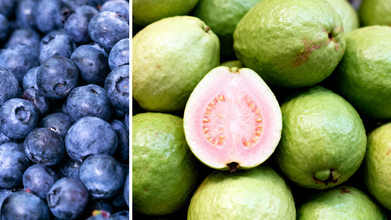- Health Conditions A-Z
- Health & Wellness
- Nutrition
- Fitness
- Health News
- Ayurveda
- Videos
- Medicine A-Z
- Parenting
Is Coffee The Ultimate Stress Buster Or Just A Elite Daily Addiction?

Image Credit: Canva
For many, like myself coffee is more than just a beverage—it’s a daily ritual, a comforting habit, and an essential fuel for tackling the day ahead. Whether you enjoy it as a morning pick-me-up or an afternoon energy boost, coffee has long been associated with wakefulness and productivity. However, beyond its reputation for increasing alertness, emerging research suggests that coffee may also have surprising benefits in reducing stress and improving mental well-being. But is your daily cup of coffee truly a stress reliever, or could it be adding to your anxiety?
Caffeine, the key component of coffee, is a stimulant that affects the central nervous system. It works by blocking adenosine receptors in the brain, which delays the onset of fatigue and keeps you alert. But beyond just keeping you awake, caffeine interacts with neurotransmitters such as dopamine and serotonin—two key players in mood regulation. Studies indicate that this interaction may have a positive impact on stress levels and even depression.
A study published in Psychopharmacology found that caffeine consumption can help prevent stress responses in the brain. It does this by inhibiting adenosine receptors that typically contribute to stress-related symptoms such as anxiety, mood swings, and memory impairment. By blocking these receptors, caffeine may help lessen the impact of stressful situations, making you feel more resilient throughout the day.
Can Coffee Help with Depression?
Beyond stress relief, research has shown that caffeine may also play a role in lowering the risk of depression. According to a large-scale study published in Archives of Internal Medicine, women who consumed caffeinated coffee regularly had a lower risk of developing depression compared to those who did not. The study hypothesizes that caffeine increases dopamine release in the prefrontal cortex, an area of the brain responsible for mood regulation. Since low dopamine levels are linked to depression, this effect could explain why some people feel a noticeable mood boost after drinking coffee.
Coffee’s Role in Reducing Physical Stress
Stress is not just mental; it also has significant physical effects on the body, including elevated heart rate, increased blood pressure, and heightened cortisol levels. Interestingly, coffee contains antioxidants and polyphenols that may help counteract some of these stress-related symptoms.
According to research from Johns Hopkins University School of Medicine, coffee’s high antioxidant content can reduce internal inflammation, which plays a major role in stress-related diseases such as heart disease and high blood pressure. Additionally, polyphenols in coffee have been found to improve blood circulation and lower the risk of stroke, making coffee a potentially heart-friendly beverage when consumed in moderation.
When Coffee Increases Stress
While coffee has many potential benefits, it’s not a one-size-fits-all solution. Some individuals are more sensitive to caffeine than others, and excessive consumption can lead to heightened stress levels rather than relief. High doses of caffeine can trigger the body’s fight-or-flight response, causing symptoms such as:
- Increased heart rate
- Jitteriness or restlessness
- Digestive discomfort
- Sleep disturbances
Furthermore, coffee can interfere with calcium, magnesium, and potassium absorption—minerals that play a crucial role in maintaining mental and physical well-being. People who experience heightened anxiety or pre-existing heart conditions should be cautious about their caffeine intake to prevent unnecessary stress on their nervous system.
How Much Coffee Is Too Much?
The Dietary Guidelines for Americans suggest that most adults can safely consume up to 400 milligrams of caffeine per day—equivalent to about three to five cups of coffee. However, individual tolerance varies, and some people may feel the effects of caffeine more strongly than others. Pregnant women, individuals with heart conditions, or those prone to anxiety should consider reducing their intake or switching to decaf alternatives.
If you’re looking to get the benefits of coffee without the drawbacks, consider drinking it earlier in the day, avoiding excessive sugar, and opting for high-quality, organic coffee to minimize exposure to pesticides and chemicals.
How to Make Coffee Work for You
Instead of relying on coffee as a quick-fix solution to stress, it’s best to integrate it into a balanced lifestyle. Here are some ways to make coffee consumption work in your favor:
Pair coffee with a nutritious diet – Combining coffee with a healthy breakfast can prevent blood sugar spikes and crashes that may contribute to stress.
Stay hydrated – Drinking plenty of water alongside coffee helps counteract dehydration, which can contribute to fatigue and stress.
Monitor your caffeine intake – Pay attention to how your body responds to caffeine and adjust your intake accordingly.
Practice mindfulness with coffee – Enjoy your coffee as a ritual rather than a necessity; taking slow, mindful sips can enhance relaxation.
Coffee Recipe: Iced Pumpkin Spice “Latte” Smoothie
If you want to enjoy the benefits of coffee while keeping it healthy, try this simple, nutrient-packed recipe:
Ingredients:
- 1 cup brewed coffee
- ½ cup milk of choice (almond, oat, or dairy)
- 2 tsp pumpkin pie spice (or ½ tsp each of cinnamon, nutmeg, ginger, and allspice)
- 1 tsp vanilla extract
- ½ cup canned pumpkin
- 4 ice cubes
Instructions:
Blend all ingredients until smooth. For sweetness, use a small amount of pure maple syrup instead of refined sugar. This smoothie offers fiber, antioxidants, and the comforting taste of fall—all in a stress-friendly cup!
The answer depends on the individual. While moderate coffee consumption has been linked to lower stress levels, improved mood, and potential protection against depression, excessive intake can have the opposite effect, leading to anxiety and sleep disturbances. As with most things in life, balance is key. Enjoy your coffee mindfully, listen to your body’s response, and integrate other stress-management techniques like exercise, proper sleep, and mindfulness to maintain overall well-being.
So, is a cup of coffee the answer to less stress? It can be—when consumed wisely!
The 4 Foods You Should Eat To Boost Collagen

Boost Collagen With These Superfoods (Photos: Canva)
Collagen is essential for maintaining firm skin, prevent premature aging and regulates cell proliferation. While it is usually found in animal sources, many fruits and super foods acts rich sources.
Why Does Collagen Fall as You Age?
Collagen production begins to decline in mid 20’s and falls to very low levels when you reach menopause. This occurs due to the nature process of ageing, because of which cells responsible for producing collagen become less active. Factors like sun exposure, smoking and stress can make it worse.Here are natural collagen rich superfoods, you can consume:
Vitamin C Rich Fruits Guava, Amla, and kiwi help stimulate collagen supporting skin repair and hydration.
Strawberries are rich in polyphenols, reducing oxidative stress, while oranges provide hydration and vitamin for rebuilding the skin. These fruits are catalysts essential for youthful and resilient skin.
Meats
Items such as bone broth, stock and chicken are rich in collagen. Fish offers omega 3, Omega reduces inflammation and prevents against chronic diseases. Egg whites contain proline and glycerin crucial amino acids which are organic compounds essential for building proteins and hormones in the body.Leafy Greens and Nuts
Spinach provides magnesium and antioxidants that preserve collagen. Nuts such as cashews and almonds rich in Vitamin E. Furthermore, pumpkin and flax seeds are crucial for maintain collagen stability.Supplements
Collagen is the perfect ingredient for glowing skin and it is all over the internet–coffee, Collagen is added to coffee by mixing peptides which dissolve easily in hot liquid and powders that give comparatively quicker results. Type 1 Collagen is usually considered the best for skin.
This Cheap Alternative to Blueberries Can Help Your Heart

Guavas Better Than Blueberries (Photos: Canva)
Tiny but mighty, eating blueberries not only gives you a sweet taste but also can be extremely beneficial for your entire body.
Extremely rich in antioxidants called anthocyanins, they help with slowing down brain aging. Along with this, the fruit also helps regulates blood pressure and cholesterol levels, overall improving cardiovascular health.
Although they might sound beneficial, they are pricey and inaccessible to a majority of the public.
However, experts have now revealed that guava can provide the body with more benefits than blueberries at half the price.
Why Is Guava Better Than Blueberries?Guavas are living proof that appearances are deceptive. Packed with nearly five times more Vitamin C (about 228mg) and loaded with digestive fibers, this winter fruit is perfectly suited for everyday snacking.
According to Healthline, a single guava can fulfill 12 percent of your recommended daily intake of fiber. A 2025 overview by PubMed also shows that guava leaves have been researched for managing blood sugar levels.
Guavas contain soluble fibers which slow down the digestion and absorption of sugars, preventing sudden spikes in glucose levels. Previous research also shows that regular consumption can help improve insulin sensitivity and lipid profiles, benefiting metabolic health.
With significantly higher Vitamin C content than blueberries, this fruit supports collagen production and gives you brighter skin and protection against premature aging.
Which Other Fruits Are Rich in Antioxidants?
You might not have noticed that some fruits lying unwanted in your fridge might just be hidden gems: jamun, amla and pomegranates are also brimming with antioxidants that can support immunity and overall heart health.While cranberries support urinary tract health by preventing bacterial adhesion and reducing inflammation, strawberries are rich in Vitamin C and folate and help with blood sugar regulation which can help stabilize glucose levels.
After all the environmental damage and aging that you have caused your skin, it deserves the utmost care and protection to rebuild and glow.
While blueberries have been linked to improving skin texture, goji berries are far rich in flavonoids that can neutralize free radicals, boost collagen and protect against UV damage.
Blackberries and raspberries are excellent sources that reduce oxidative stress and inflammation.
Experts recommend incorporating a mix of these fruits in your diet to help repair your DNA, reduce inflammation and prevent chronic conditions.
14 Drinks Or More A Week Could Increase You Risk Of Colon Cancer By 25%

Credits: Canva
If you drink 14 drinks per week, the American Cancer Society's peer-reviewed journal Cancer, noted that you have a 25% higher risk of developing colorectal cancer. This also means that you have a 95% higher risk of developing rectal cancer as compared to those who drink an average of one drink per week.
Moderate alcohol intake is measured as seven or less drinks per week, which is associated with a lower risk. However, experts have time and again stressed that there is no safe limit of drinking.
"While the data on former drinkers were sparse, we were encouraged to see that their risk may return to that of the light drinkers,” co–senior author Erikka Loftfield of the National Institutes of Health's National Cancer Institute said in a news release.
What the Study Found
The findings come from an analysis of U.S. adults who took part in the National Cancer Institute’s Prostate, Lung, Colorectal and Ovarian Cancer Screening Trial. Researchers tracked 88,092 participants over a 20 year period and identified 1,679 cases of colorectal cancer during that time.
The data showed a clear pattern. Higher lifetime alcohol consumption was linked to a higher risk of colorectal cancer, with the strongest association seen for rectal cancer. However, the study also offered encouraging news. People who stopped drinking saw their risk decline, highlighting that lifestyle changes can still make a difference later in life.
Read: Drinking Alcohol Could Damage Your DNA, Not Just Your Liver Or Heart
Colorectal Cancer Is Rising in Younger Adults
These findings come at a time of growing concern about colorectal cancer rates, especially among younger people. Earlier this month, the American Cancer Society reported that colorectal cancer has become the leading cause of cancer-related deaths among people under 50 in the United States.
Dr. Ahmedin Jemal, senior author of the report and senior vice president of surveillance, prevention and health services research at the American Cancer Society, said the trend is alarming. He noted that the speed at which colorectal cancer rates have risen among younger adults means it can no longer be considered a disease that only affects older people.
Also Read: Diljit Dosanjh Swears By This Green Juice to Power His 4am to 9pm Routine
Changing Guidance on Alcohol Consumption
Federal health guidance around alcohol has also shifted. Instead of specifying how many drinks are considered safe, the latest dietary guidelines advise Americans to drink less overall. People with certain health conditions are encouraged to avoid alcohol entirely.
Christopher Kahler, director of the Center for Alcohol and Addiction Studies at Brown University, has previously explained that no amount of drinking is completely risk-free. According to him, health risks increase with higher consumption, which is why current guidelines focus on reducing intake rather than defining a safe threshold.
What This Means for Individuals
Taken together, the research reinforces a simple message. Heavy drinking raises cancer risk, drinking less is better for health, and stopping alcohol use can help lower the chances of developing colorectal cancer. With rates rising in younger adults, experts say awareness and prevention efforts are more important than ever.
© 2024 Bennett, Coleman & Company Limited

